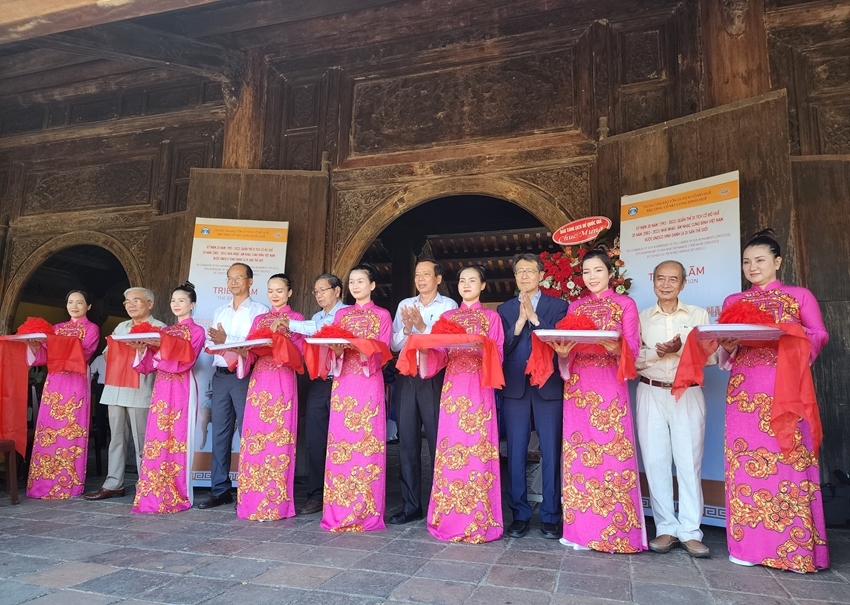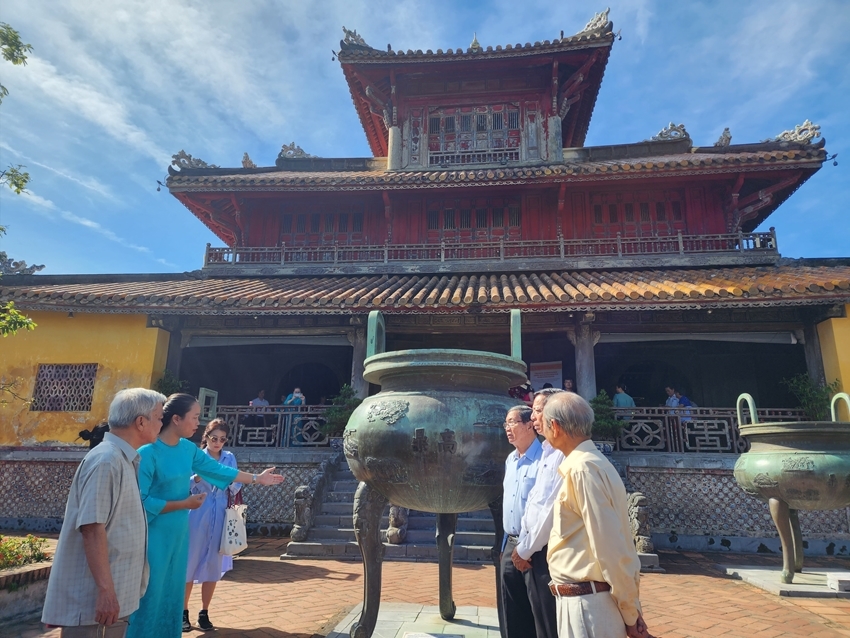    |
 |
| Cutting the ribbon to open the exhibition “Vietnam land on Nine Dynasty Urns” at Hien Lam Cac |
The exhibition introduces 32 typical photos taken about the sea, rivers, and mountains all over the country that are carved on Nine Dynasty Urns, arranged into 9 clusters of themed panels for visitors to have an overview of landmarks, rivers, mountains, and sea when visiting the Nine Urns.
The Nine Urns were started casting from December, 1835 to March, 1937 (January of the 18th year of Minh Mang reign), the court held a thanksgiving ceremony and placed these Nine Urns in front of The To Mieu to this day.
    |
 |
| Introducing the meanings of decorative patterns carved on the urns |
Each urn is embossed with 17 decorative images with the themes of plants, animals, landscapes, places, and two Chinese characters identifying the name of the urn. The embossed patterns on each urn are arranged in turn in 3 rows around the urn body, and all have Chinese names attached. These decorative patterns express the diversity and richness of decorative styles and themes, generally expressing the images of the universe, creatures, plants, landmarks, river and mountains, as well as artefacts, etc.
The images selected to be embossed on the Nine Urns can also be considered as a living encyclopedia about Vietnam at that time, in which, 34 images of famous places spreading out across the country’s territory are delicately carved to express an overview, a panorama view of the unified Vietnam land, etc.
With great cultural and historical values and the pinnacle of manufacturing techniques, in 2012, the Nine Urns were recognized as National Treasures by the Prime Minister.
At present, the Hue Monuments Conservation Center has completed the construction of the documentary heritage profile for the Nine Urns and has submitted to UNESCO to recognize the Nine Urns as the World Documentary Heritages.
